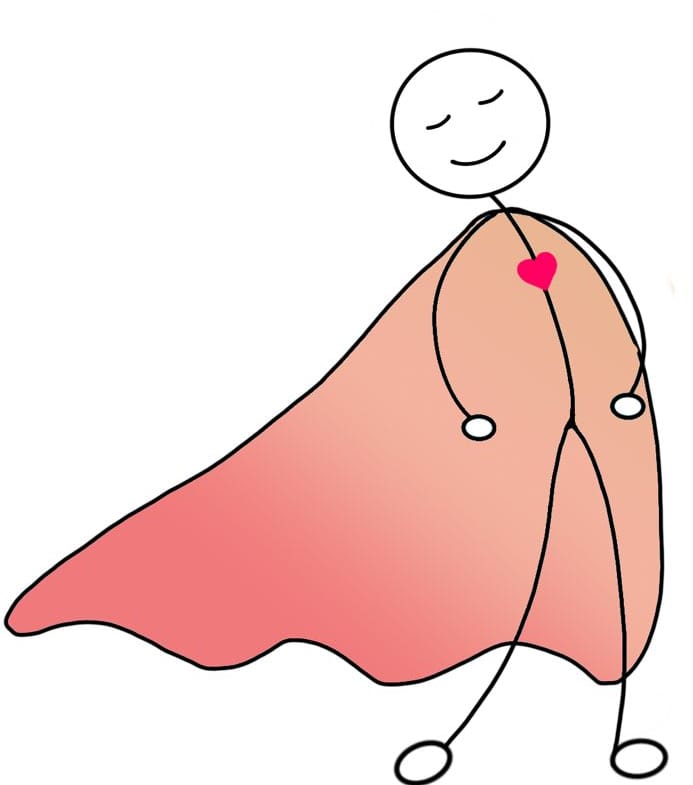What's your story?

"Hi, xyz has happened to me, and I'm still carrying this around with me today and by the way, my name is Sabiha."
Does this sound familiar? I often wonder why and how people share their stories. After all, we all have one to tell. I exclude obvious psychopaths who can't share their stories for fear of being exposed, but rather, focus on those whose identities revolve solely around where they've come from and what has happened to them. What makes you share yours and how does it dominate your life right now? Do you wear it as a badge of honour, making it your whole identity? Do you wear it as a chip on your shoulder, tainting all your interactions with negativity? Do you leave it at home, where it never troubles you? Do you play the victim with it, seeking sympathy? Are you even conscious of it? For me, it's been a journey of self-discovery and acceptance. I've learned to rewrite my narrative, introducing myself confidently as who I am today, without dwelling on past struggles. It's liberating, really, to embrace the present without apologising for the past.
With storytelling, it naturally leads us to consider the importance of creating your 'Why.' There's such great emphasis these days on what is our motivation? Previously, if you had a good idea, and could execute it, that was enough, now, we need to share why we want to do that in form of our story. I want to be able to share why, my purpose, my mission, without oversharing things that could overshadow the original thought. I would love to see people share why they are here now, without the all consuming backstory holding them back.
I've met people whose stories were bigger than they were. I was that person, who didn't have much else to contribute other than my sob story. I take no pleasure and somewhat great embarrassment in reliving those moments. But I tell myself, I have worked hard at rewiring and becoming the person who can confidently say, 'I'm Sabiha,' and I aim to make no excuses for any backlash that might arise from someone taking something as offence. I think it's a wonderful place to be. After all, everyone gets offended far too easily these days.
Sure, sometimes when meeting someone, stories can be important to get context on them. Maybe you're the type of person who needs an understanding to excuse a behaviour or piece things together so they make sense. Maybe you are seeking connection and healing and then bonding over your stories, helps you..for a while. At what point does the perceived empowerment from inspiring others and building an attachment become harmful? I think it's when it holds you back and you don't see anything else except your past story. How do you get to escape the one thing that hurt you, if you're always living that as your present? People seek out stories too, but why can't we just meet someone at face value and accept them for who they are today, provided they are aware of who they actually are? More importantly, why can't we accept it for who we are, we don't owe anyone our stories. A good friend in the past, said to me, 'You're story should be earned, not everyone gets that's privilege'.
I've always found that those with complex, sad stories are haunted by them. In order to grow from our pasts, it's important to choose how we lead and why we do it. Some cultures argue that leading with your story can build connection and rapport, which is great. However, the opposite could happen as many might unattractively utilise their pasts as a form of unconscious comparative competition, and cannot escape the need for validation regarding why they are the way they are. They require you to acknowledge their identity and hardship through this communication style, often masking a lack of growth and emotional regulation. Some folk tell you their hardship stories purposely, be wary of those people as they only want a one sided dialogue to draw attention exclusively to themselves. They aren't ready or wanting connection, they tend to want admiration and respect. Respect should be earned especially through empathy for others as it shows willingness to support one another.
If you have worked hard on yourself, then sometimes leading with a story takes away that moment of someone getting to know you now. If you're lucky, you have a 'you' now, and you would want to show that hard work, surely? At times in my past, I have led with insecurities as a way to show someone, yes, there is a problem with me. The joke is, we are all made up with some issues, some just hide it better than others and some choose daily not to let it overpower. When you tell someone there is a problem, everything after that interaction can be lost. People tend to focus on that one thing. Sometimes, unfortunately, they can judge us on that. The subconscious mind can decide how we then prioritise that person.
Let's take dating as an example. Subject A, a woman who has endured a string of unfortunate relationships, is seeking a genuine connection. Despite her longing for a healthy relationship, she consistently finds herself attracted to the same type of unsuitable partners. However, one day, she encounters a "nice" guy. Burdened by her past traumas, she inadvertently shares her history of mistreatment early on, which the nice guy interprets as a sign of her familiarity with low standards. Consequently, he fails to prioritise her, opting for inexpensive outings and less communication, ultimately fading away from her life entirely. This scenario highlights the intricacies of dating dynamics, illustrating how past experiences can shape present interactions, often leading to misunderstandings and disillusionment.
Another example: at a networking event, I felt confident and engaged. However, I made the mistake of revealing my insecurities about speaking up, which led to others behaving differently with me. This incident made me realise the importance of confidence and how self-disclosure can shape others' perceptions.
Additionally, I've met my fair share of people whose stories overshadowed everything else. You know the type—those whose introductions start with a shopping list of hardships. While it's admirable to overcome challenges, there's a fine line between sharing your story and letting it define you entirely. I worry those who lead with bad backstories never truly free themselves because they are constantly living it. If you tell yourself you're not worthy of love, you're a victim, bad things happen, you can't catch a break, chances are that's all you see. We are wired to hone in on the smallest bad things, rather than the good ones. If we were to write about our lives in bullet points, how many good things would be up at the top of the list. Why not try it now? List your life in bullet points, how would you lead? Just like being attractive, people are magnetised to those who are positive on life, glass half full folk. Would you want to hang around with people who are always sad and gloomy? Or just maybe, you want some magic to rub off on you, so you surround yourself with those who seem full of hope. The individuals we expose ourselves to hold equal importance to the quality of our inner dialogue. Together, they shape both our internal mindset and the world around us.
However, I know it can be a challenge, we are now in a world that allows us to see other people's lives, so feel we need to compete or compare on how our lives are going. We don't get to avoid it unless we consciously choose to. There are ways to do this and one is to practice mindfulness and being present. That's not to say you don't acknowledge and reflect on your journey so far, but in this moment, who are you and where are you? Take that moment to observe and in each moment forwards, make a mental note. Enjoy that moment. Does your story need to be shared? Or can it be tastefully executed in how you respond? Show up as your authentic self, with self-compassion and the confidence to say I am all good here, there is nothing wrong and enjoy that moment. In the long run, focusing on the now creates a sense of purpose and direction that transcends your story.
In conclusion, while our stories are important and shape who we are, they do not define us entirely. Our stories may build character and demonstrate growth, but they are not the sole determinant of our identities. It's up to us to decide who gets to hear our stories and how we choose to share them.
So, who are you? What's your name? And what brings you here today? These questions are essential, shaping not only how you answer but also why you seek what you seek. So, as you reflect on your own story, remember that it's not about overexposure but rather about empowering yourself to shape the path ahead.





